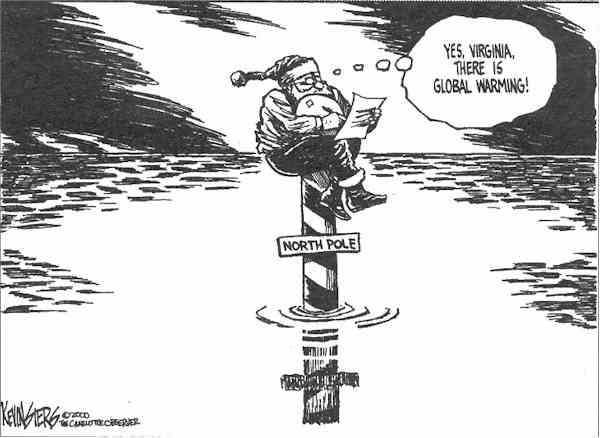 Governor Kaine's Commission on Climate Change has issued its final recommendations. Simply put, there's a lot to like:
Governor Kaine's Commission on Climate Change has issued its final recommendations. Simply put, there's a lot to like:Kaine had asked the commission to find ways to cut greenhouse gas emissions - mostly carbon dioxide from cars, power plants, factories, landfills, buildings and homes - by 30 percent of the projected levels in 2025.People like Paul Ferguson and Skip Stiles deserve credit for fighting over the last year to make sure the commission delivered strong targets. It looks like they got much of what they wanted, even coming within a single vote of a moratorium on new coal-fired power plants until carbon-capturing technology is available.But the commission voted during its last work session Thursday to go further and faster. It recommended that Virginia shoot for reductions of 25 percent below 1990 emission levels by 2020 and 80 percent by 2050.
The goals mirror what President-elect Barack Obama has endorsed for a federal program to combat global warming and follow closely what the Intergovernmental Panel on Climate Change has embraced. That group shared a Nobel Peace Prize with former Vice President Al Gore last year for its scientific efforts.
Now it's up to Gov. Kaine and the General Assembly to put these recommendations into action. If Republicans in the General Assembly are thinking about reject the results of this bipartisan commission, they need to know they'll face voters in the fall who want climate action now.
Cross-posted from RK

6 comments:
Hopefully this will go through. It's ridiculous that people would ignore recommendations like this. Thanks for reporting it Miles.
We should all be suspicious of the notion of a government commission that sets out to tell private companies how to run their business. The most likely result is that we are all going pay a lot more for less.
Yes, deregulation is key. Private companies should be allowed to do what they want without any interference from government. Please tell this to AIG. And the Big Three. And then ask for our $725 billion back.
Miles - With sarcasm you are trying to put words into my mouth. There is a world of difference between restricting business with regulations and telling businesses how to operate. Can't you tell the difference?
In a free society, the government exists to protect the rights of the People. Government stops us from hurting each other. In an authoritarian regime, government exists to protect and enforce the interests of the elite. Government tells the People what they must do.
Look closely at the commission's scheme. Has the commission crossed the line between regulation and trying to operate business? Has the commission left it to business to figure out how to comply with regulations or is it trying to design and impose a solution?
Hey Mr. Liberal - I see what you are saying but this isn't about telling companies how to run their business but stepping in to protect the people of Virginia.
And if you think about it, the government already tells us to do a lot of things which protect our environment that I think are similar to these recommendations. From requiring cars to be safety and emissions inspected on a regular basis and even telling us what days to put out our garbage and recycling. I think these recommendations by the commission are similar but on a larger scale. While it may cost companies additional expense, it is about protecting the air we breath and the water we depend upon collectively.
Lauren - It seems to me you have confused a comfortable excuse with a logical argument. Are you familiar with the old adage, "Two wrongs do not make a right." Just because our government is already doing something the wrong way does mean we should allow our government to do more wrongs.
When we allow our government to tell us what to do, our politicians use this authority to pick winners and losers. Those special interests who buy sufficient influence win. The rest of us lose.
Our government needs to establish and enforce law against dangerous releases of toxic waste. We can discourage the release of less dangerous pollutants by taxing them. But our politicians do not need to tell businessmen how to run their businesses. Such direction is both counterproductive and antithetical to freedom.
Post a Comment